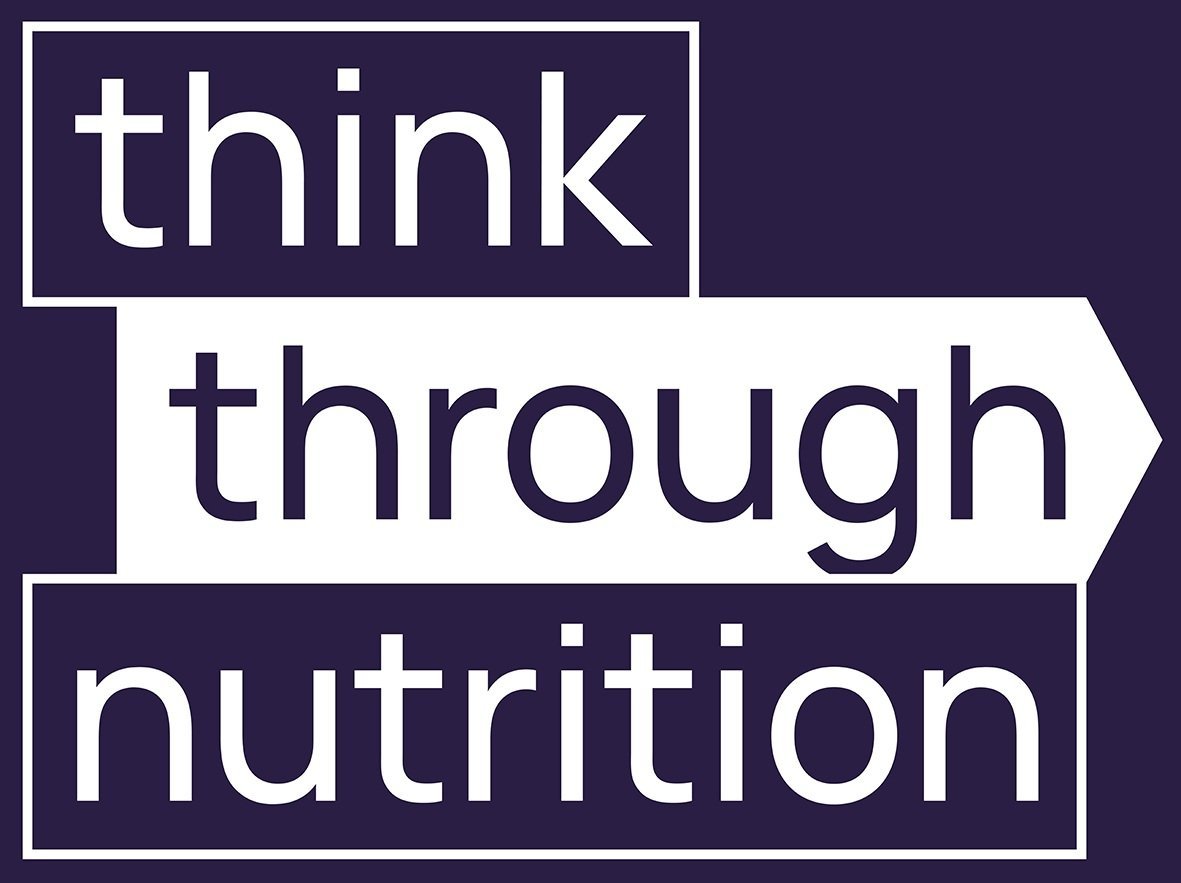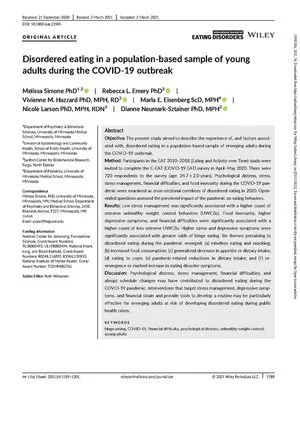Covid-19 pandemic has been linked with six unhealthy eating behaviours
Publication date
15 March 2021
Authors
Melissa Simone PhD
Rebecca L. Emery PhD
Vivienne M. Hazzard PhD, MPH, RD
Marla E. Eisenberg ScD, MPH
Nicole Larson PhD, MPH, RDN
Dianne Neumark-Sztainer PhD, MPH
The Publication
The direct impact of COVID-19 and the cost to many lives across the world has been devasting. However, the extent of the psychological impact, caused by lockdown, financial insecurities, and social isolation is yet to be elucidated.
This study sought to understand the association between the stress, psychological distress, financial difficulties and changes in individuals’ eating behaviours as a result of the pandemic. The study highlighted 6 key themes:
Mindless eating and snacking
Increased food consumption
Generalized decrease in appetite or dietary intake
Eating to cope
Pandemic-related reductions in dietary intake
A re-emergence or marked increase in eating disorder symptoms.
These behaviours are huge public health concerns. Whilst there has been a lot of focus on obesity and the link with COVID-19, eating disorders have the highest risk of mortality across all psychiatric health concerns. The study revealed that disordered eating was linked to moderate or extreme financial difficulties and poor stress management. This is very worrying, particularly as the economic impact of the pandemic is likely to persist for years to come. Collectively, behaviours facilitating both obesity and disordered eating, which have been exaggerated as result of the pandemic, need to be addressed. This means that the myopic view of healthcare, reliant on pharmaceuticals, needs to be strongly challenged.
Our Response
These findings highlight key areas that need to be addressed at a public health and government level. Firstly, the importance of food security and food provision; ensuring access to sufficient food sources in the wake of COVID-19. Secondly, consideration of a new approach to obesity and disordered eating. Interventions should be focusing on strategies to facilitate behaviour change and addressing the root causes of individuals’ behaviour. This is exactly what we do in our programmes at Think Through Nutrition, where time is spent educating individuals on the impact of their dietary choices on behaviour and action.

